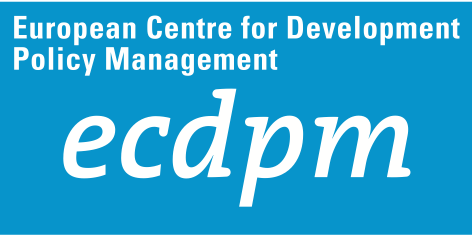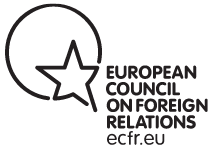Tax disobedience in Côte d’Ivoire: What role do poverty, national identity, and access to tax information play?

Since the end of its civil war in 2011 and the installation of President Alassane Dramane Ouattara, Côte d’Ivoire has seen one of the highest rates of economic growth in Africa, sometimes referred to as a new “Ivoirian miracle” (Dionne & Bamba, 2017). As the economy has grown and the state has rebuilt capacity, tax revenues have increased steadily, growing by 61% between 2013 and 2019.
In many African states, import and export taxes make up the core of tax regimes, supplemented by indirect taxes such as sales and excise taxes (D’Arcy, 2011). In the case of Côte d’Ivoire, the government relies heavily on taxes on the export of cocoa and other agricultural products, in addition to taxes on industrial and commercial profits, income, telecommunications, petroleum products, imports, as well as a value-added tax (Ministère du Budget et du Portefeuille de l’Etat, 2020).
Even in states with high levels of coercive capacity, citizens’ willingness to pay taxes is a significant determinant of revenues collected. This willingness becomes even more important in contexts of relatively low state capacity, such as has existed in post-conflict Côte d’Ivoire.
Overcoming Africa’s Tech Startup Obstacles - How established enterprises can help the region’s innovators scale up

Africa has made great strides recently in fulfilling its dream of becoming a launch pad for innovative high-tech companies. From 2015 through 2020, the number of African tech startups receiving financial backing grew at a 46% annually clip—some six times faster than the global average—according to the venture capital firm Partech Partners.
Africa’s record of sustaining and scaling up startups, unfortunately, is another story. The entire continent has only three “unicorns”—privately held tech companies valued at more than $1 billion—the most recent being Nigerian fintech Flutterwave. By contrast, there are more than 50 unicorns in the EU, 100 in China, and 200 in the US. In fact, by our count there are fewer than 20 African “zebras” (valued at least $200 million). African startups rarely survive beyond the Series B funding stage. As a result, returns on venture capital investments are weak—less than 3% on average across the region over five years, compared with around 11% in Asia-Pacific and nearly 16% in Europe.
A number of structural barriers make Africa challenging for tech entrepreneurs and investors. They include a fragmented market of 54 countries, low consumer purchasing power, complex and inconsistent regulations, inadequate data communications infrastructure, and scarce capital and digital talent.
Mapping of EU Investments in Cabo Verde - How European Union Investments contribute to sustainable development in Cabo Verde

This brochure showcases the presence and impact of the European investorsThis brochure showcases the presence and impact of the European investorsin Cabo Verde. This analysis, made by the EU mission to Cabo Verde, containsindicative data, provided on a voluntary basis by the companies, on key EUCaboVerde partners; investment characteristics; economic impact; Corporate SocialResponsibility; barriers and opportunities for investment.
The European Union and Cabo Verde have been close partners for more than 14 years,The European Union and Cabo Verde have been close partners for more than 14 years,since the signature of the Special Partnership in 2007. Since then, both have been workinghand in hand, bringing prosperity to its citizens and building a close relationship in political,social, cultural and economic matters.
As the country’s largest trading and investment partner, the European Union wishes toAs the country’s largest trading and investment partner, the European Union wishes topromote a favorable business climate to foster a sustainable and inclusive economy. Tothis end, mapping out the EU business presence in- country is a step towards strengtheningthe potential of the private sector in the Cabo Verdean economy, in line with the national«Cabo Verde 2030 ambition» and EU-Africa Partnership for Sustainable Growth and Jobs.
Financing for Africa – The EU budget and beyond

Africa, a continent of strategic importance for the EU, has been in the spotlight of EU attention in recent years for a variety of reasons. In 2020, the Cotonou Agreement, which had governed EU-sub-Saharan Africa relations since 2000, was set to expire. The European Commission and EU High Representative adopted a joint communication in 2020, charting the way towards a new strategy for Africa. However, the sixth EU African Union Summit, planned for the end of 2020, was postponed due to the global pandemic. Thus, 2021 appears to be the next key year for EU-Africa relations, in light of the planned summit and the prospective adoption of both a new EU strategy for Africa and the post-Cotonou agreement, expected to transform these relations into a 'partnership of equals'. The EU's long-term budget – the multiannual financial framework (MFF) – has also featured high on the EU's agenda. The expiry of the previous MFF (2014-2020) in December 2020 and the entry into force of the new, restructured MFF for the 2021-2027 period in January 2021 coincided with efforts to reinvigorate and relaunch relations with Africa. Financial support is one of the key tools in the EU's external action, and, as before, it will also underpin future relations with Africa. This briefing aims to map the main EU financing instruments of relevance to Africa, including the funds that are outside the EU budget. It also points out the main novelties in the new MFF that have an impact on financing for Africa, such as the inclusion of the European Development Fund in the EU budget and the merging of most previous instruments into a single one, the NDICI (Global Europe Instrument). In the next seven years, the EU aims to spend its funds in a more flexible and streamlined way. This would enable it to respond quickly to crises and urgent needs in Africa and the rest of the world, to better coordinate its spending with its partners following a 'Team Europe' approach, and to leverage additional investment, including from the private sector, to boost growth and reduce the gap in official development assistance needed to achieve the sustainable development goals by 2030.
Developments in Paperless Trade: Implications for Zambia’s Small-Scale Cross-Border Traders

The Trade Facilitation Agreement is an important regulatory framework designed to promote efficiency and predictability in international trade, specifically with respect to the clearance, release and movement of goods.
AU-EU cooperation on climate and energy: In search of a common narrative

Climate has been on the agenda of the AU-EU partnership from the start, yet while both the EU and Africa have a strong stake in accelerating climate change mitigation, a clear common agenda has remained elusive, largely due to the historical climate injustice between the two continents.
This note takes a closer look at the engagement between the EU and the AU on climate, the environment and green transition, as well as the interests and incentives that underpin ongoing cooperation. While Europe and Africa have different climate needs and interests, some of the building blocks of a joint AU-EU agenda are starting to appear. These notably include common interests in renewable energy expansion and an ambitious global green recovery narrative. At the same time, a number of critical challenges remain, including perceptions of potential negative economic consequences of the EU’s internal transition.
IFRI: Conséquences économiques et politiques de la chute de la production pétrolière en Afrique subsaharienne à l’horizon 2030

Le vif rebond des prix du pétrole depuis le deuxième semestre 2020, tutoyant en mai 2021 les 70 dollars par baril, ne représente qu’un répit ponctuel pour les économies africaines ultra-dépendantes aux ressources pétrolières qui doivent très vite faire évoluer leur modèle.
La crise du COVID-19 a encore davantage affaibli les économies pétrolières du golfe de Guinée que celles des autres pays africains, aggravant une situation déjà devenue critique depuis 2014-2016, lors de la précédente période de crise des prix du pétrole. Si l’ensemble des pays producteurs africains membres de l’Organisation des pays exportateurs de pétrole (OPEP) sont entrés en récession en 2020, les autres pays historiquement producteurs de faibles volumes ont été beaucoup moins touchés par les conséquences économiques de la pandémie et ont évité la récession économique.
Invest in Kenya: Local business intelligence

This report provides company-level information for investors on agribusiness, manufacturing and services. It includes performance-related data on themes like international certification, innovation capacity, ICT use and access to electricity and logistics services. Investors will find practical information on how investment in those sectors can contribute to meeting the Sustainable Development Goals.
FREE TO CHOOSE: A NEW PLAN FOR PEACE IN WESTERN SAHARA

This year marks the thirtieth anniversary of the creation of the UN Mission for the Referendum in Western Sahara (MINURSO). The mission was originally tasked with laying the groundwork for Sahrawi self-determination while monitoring a ceasefire between Morocco and Polisario – the Western Sahara national liberation movement. In setting up the mission, the United Nations promised to end the long-running conflict in what remains Africa’s only territory still awaiting decolonisation. Yet, three decades later, the UN has little to show.
The Impact of the Covid-19 Pandemic on Border Communities

The Case of Chipinge – Zimbabwe
This Policy and Practice Brief (PPB) discusses the implications of the coronavirus (COVID-19) pandemic on border communities, principally in relation to border controls by governments and trans-border activities by community members living close to the border in Zimbabwe. This is done with a special focus on the Chipinge district to the south-east of the country, which shares the border with Mozambique. The PPB argues that the border has become the lifeline of the Chipinge communities. Therefore, with the outbreak of COVID-19, efforts to regulate the movement of people across the border have served to weaken their economic and social base, while simultaneously promoting illicit deals along the border as people try to earn a living and interact.




